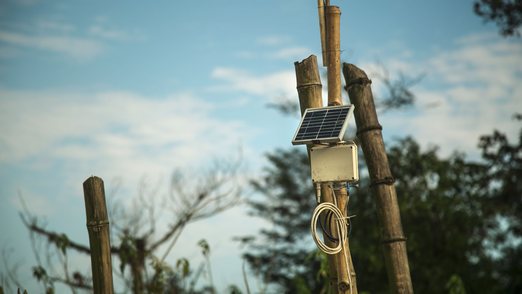|
The urban poor living in Da Nang City, Vietnam, are highly vulnerable to storms and floods because their homes are often poorly constructed and maintained, and families frequently struggle to recover from storm damage due to low income and rising costs.
In order to increase the urban poor’s resilience to the effects of climate change, the Women’s Union in Da Nang administers a revolving loan to make their homes resistant to storms. The Building Storm-resistant Houses initiative has helped hundreds of lower-income households rebuild and repair their houses.

Key facts:
- The activity has helped 245 lower income households to rebuild and repair their houses with an approximate budget of USD 248,000.
- The urban poor living in 8 vulnerable wards in Da Nang City are now more resilient to the storms that are increasing in frequency and intensity due to climate change.
- 320 households have reinforced or reconstructed their homes in the first three years and up to 420 households will have made their homes resistant to typhoons and floods by 2017.
The problem
Parts of Da Nang City are highly vulnerable to increasingly more intense and frequent storms and flooding.
In 2006, typhoon Xangsane resulted in the complete collapse of almost 1,300 houses and the partial or total loss of roofs of 13,000 houses in the Son Tra District alone. Families frequently struggle to recover from storm damage to their homes due to low income and rising costs.
The solution
The Women’s Union in Da Nang administers a revolving loan to make the urban poor’s homes resistant to storms in 8 disaster-prone wards. The union also established a revolving loan fund for small businesses, to support at least 30 poor households to improve their credit worthiness.

Helping people
A typhoon hit the region in 2013, proving that the renovated homes are in fact saving lives and preventing damage. All of the 245 houses covered under the project (except one under construction) withstood the effects of Typhoon Nari, which caused USD 4.8 million in housing damage to the city.
The activity has built capacity and knowledge for the Da Nang Women’s Union to support climate change resilience, organize activities related to climate change adaptation and community-based disaster risk management and help vulnerable households adapt to climate change and respond to natural disasters.
Spillover effect
Scaling up is a critical objective of the project. The Women’s Union will continue to disburse housing loans for at least three years following the first three years. It will also open a funding channel for international donors, and partners like banks, insurance companies, payday lending companies, working on climate adaptation in Da Nang to support the activity directly through grant or loan finance.
To promote replication, activity representatives will present their work during three workshops in Da Nang and at appropriate national venues; meet with interested agencies in other provinces; and promote the housing model at a national level.
   
Images owned by the activity partners, all rights reserved.
|